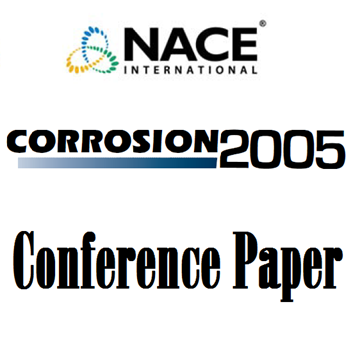Search
99140 CORROSION AND PROTECTION OF MILD STEEL IN PETROLEUM DISTILLATES – ELECTROLYTE MIXTURES
Also Purchased
09163 Corrosion and Fouling in Petrochemical Environments
Product Number:
51300-09163-SG
ISBN:
09163 2009 CP
Publication Date:
2009
$20.00
51315-5876-Corrosion Characteristics of Intermediate Light Oil Under Storage Tank Environment
Product Number:
51315-5876-SG
ISBN:
5876 2015 CP
Publication Date:
2015
$0.00
05568 Study of Corrosiveness of Acidic Crude Oil and its Fractions
Product Number:
51300-05568-SG
ISBN:
05568 2005 CP
Publication Date:
2005
$20.00




